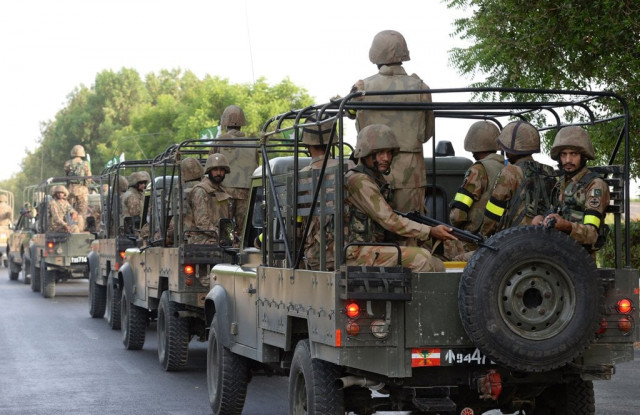War against extremism: Pakistan doing enough to counter terror, says Italian professor
Seminar on European perspective on terrorism organised at Pakistan Study Centre

Seminar on European perspective on terrorism organised at Pakistan Study Centre. PHOTO: AFP
He was addressing a seminar on ‘European Perspective on the Issue of Terrorism in Pakistan and Afghanistan’ organised by the Punjab University’s Pakistan Study Centre on Friday.
Eminent political scientist Prof Dr Hasan Askari Rizvi, former ambassador Javid Husain, Punjab Police AIG Dr Ejaz Hussain, Pakistan Study Centre Director Prof Dr Massarrat Abid and Dr Gabriele Iacovino and Dr Francesca Manenti from the Italian International Relations Centre.
While throwing light on Italy’s alliance with the North Atlantic Treaty Organisation and especially with the US, Dr Andrea said that 9/11 was not only an attack on the American soil but on the Western civilisation.
While he agreed that Islam was a religion of peace, he added there were certain organisations and groups committing terrorism in the name of Islam. “Pakistan was not known in Europe before 9/11 but things have changed after the incident,” he added.
He said the perception about terrorism in Afghanistan and Pakistan had changed because of two reasons: Taliban and other militants have become a regional problem; and the so-called Islamic State has changed the international scenario.
Concluding the speech, he said that if one did not identify his enemies, one would not be able to combat the situation.
Dr Ejaz said there was difference between scientific laws and tendencies or regularities when it came to terrorism. “Terrorism is a global issue and a cyclic process.”
Ambassador Javid was of the view that the US policy on combating terrorism in Afghanistan had four lapses. “Firstly the US completely shifted its resources and attention from Afghanistan to the Gulf, providing space to the Taliban to regain power,” he believed. “Secondly, in deciding the composition of the new government in Kabul, the US totally neglected Taliban. Thirdly, for more than 10 years, the US searched for a solution through military means; and fourthly, the US enthusiastically tried to infuse Western political values in Afghanistan while establishing the government in Kabul.”
Dr Hasan Askari pointed out the historical nature of relations between the two countries. He said that terrorism could be addressed through four different angles. “One is military and intelligence; second is non-military mechanism; third is societal and religious leaders; while the fourth is media houses,” he said.
In her welcome note, Dr Massarrat said that Italy and Pakistan shared a common vision and goal on many crucial issues, including terrorism and security. “No country can prosper without cooperation in political, economic, cultural, security and defence issues with the international community,” she said.
Italy has a growing and vibrant Pakistani community, the second largest in Europe after UK. “Peace, reconciliation and stability can be achieved by cooperation between the two countries,” Dr Massarrat noted.
Published in The Express Tribune, April 29th, 2017.



















COMMENTS
Comments are moderated and generally will be posted if they are on-topic and not abusive.
For more information, please see our Comments FAQ